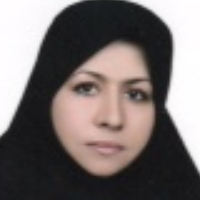The Effectiveness of Self-Healing Training on Psychological Capital, Distress Tolerance, and Headache of Addicts’ Spouses
The purpose of this study was to investigate the effectiveness of self-healing training on psychological capital, distress Tolerance, and headaches in addicts' spouses.
This study was a semi-experimental design with two group (experimental & control) and three stage (pre-test, post-test and follow up). The study population was women with addicted spouse (traditional and industrial drug abuse) that they were member of Addicts Families Association in Isfahan town in the first half of 2019. 30 subjects who were willing to participate in the study were selected using convenience sampling method based on the inclusion and exclusion criteria. They were randomly assigned to experimental group (n=15) and control group (n=15). The sample of the study responded Luthans’ Psychological Capital Questionnaire (2007), Simmons & Gaher’s (2005) Distress Tolerance Scale, and Najarian’s Headache Symptoms Questionnaire (1995). Self-healing training package of Latifi, Marvi & Loyd (2018) was given to the experimental group for twelve sessions (one 90-minute sessions weekly).
The results of the study indicated that self-healing training was effective on psychological capital, distress tolerance and headache among women with addicted spouse (p<0.05) and these results were stable also over time.
Therefore, self-healing method can be used as one of the latest approaches to improve mental and physical health of addict families in health centers.
-
Effectiveness of Self-Healing (Healing Codes ) on Deficulty of Emotion Regulation and Blood Sugar Index in Type 2 Diabetes Patients
Farzaneh Shojaei, *, Sheida Jabalameli, Mansour Siavash
Iranian Journal of Diabetes and Lipid Disorders, -
Predicting academic procrastination based on academic resilience, intolerance of uncertainty, positive and negative perfectionism: The mediating role of experiential avoidance
Mohammad Soltanizadeh *, Sara Mortazavian,
Journal of Educational Psychology Studies,



